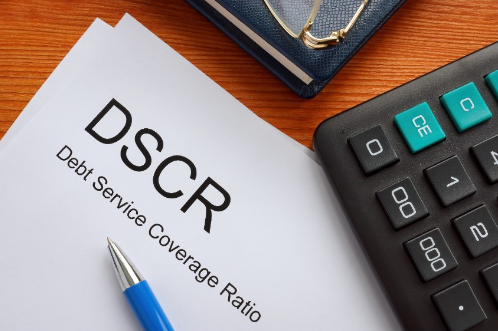In the world of finance and real estate, understanding the process of various loan options can be the key to unlocking your financial goals. One such loan that has gained popularity in Massachusetts is the DSCR loan. If you’re curious about what a DSCR loan is and how it can benefit you in the Bay State, you’ve come to the right place. In this comprehensive article, we’ll decode the Debt Service Coverage Ratio loan in Massachusetts and provide you with all the essential information you need to know.
Do Read: Redefining New Jersey Finance through Briansclub Expertise
What is a DSCR Loan?
DSCR stands for Debt Service Coverage Ratio, and a DSCR loan is a type of loan that evaluates the borrower’s ability to service their debt by considering their cash flow. In simpler terms, it helps lenders determine if the borrower can comfortably make their loan payments by assessing their income and financial stability. This is crucial in the world of real estate and commercial investments, where loans can be substantial, and the risks are higher.
DSCR Loans in Massachusetts
Massachusetts, with its thriving real estate market and economic opportunities, is an ideal place for individuals and businesses to explore DSCR loans. These loans are commonly used for financing commercial real estate projects, such as apartment complexes, office buildings, and shopping centers. However, they can also be utilized for other purposes, including business expansion and renovation.
The Benefits of DSCR Loans in Massachusetts
- Lower Down Payment: One of the significant advantages of DSCR loans is that they often require a lower down payment compared to traditional loans. This can make it easier for borrowers to enter the commercial real estate market or expand their business.
- Flexible Terms: DSCR loans offer more flexible terms, allowing borrowers to tailor the loan to their specific needs. This flexibility can be a game-changer for businesses with varying income streams.
- Interest Rates: While interest rates on DSCR loans can vary, they are often competitive. Borrowers with strong cash flow and a good credit history may qualify for favorable rates.
- Longer Loan Terms: DSCR loans typically come with longer repayment periods, making it more manageable for borrowers to meet their obligations.
- Asset Preservation: Since DSCR loans focus on cash flow and the property’s performance, they help protect the borrower’s personal assets, providing a layer of security.
How to Qualify for a DSCR Loan in Massachusetts
Qualifying for a DSCR loan in Massachusetts typically requires the following:
- Strong Cash Flow: Lenders will assess the cash flow of the property or business to ensure that it can cover the debt service.
- Creditworthiness: A good credit history is essential to secure favorable terms on a DSCR loan.
- Property Appraisal: An appraisal of the property being financed is often required to determine its value and potential income.
- Business Plan: Lenders may ask for a comprehensive business plan to evaluate the borrower’s strategy and future income projections.
- Documentation: Be prepared to provide financial statements, tax returns, and other documentation that demonstrates your ability to meet the loan requirements.
The Application Process
The process of applying for a DSCR loan in Massachusetts is similar to other loan applications. It typically includes the following steps:
- Research Lenders: Start by researching lenders who specialize in DSCR loans and have experience in the Massachusetts market.
- Preparation: Gather all necessary documentation, such as financial records, property information, and business plans.
- Application Submission: Submit your loan application to the chosen lender, along with the required documents.
- Underwriting: The lender will review your application and assess your eligibility based on their criteria.
- Approval and Closing: If your application is approved, you’ll work with the lender to finalize the terms and close the loan.
Common Mistakes and How to Avoid Them
While DSCR loans offer numerous benefits, it’s essential to be aware of potential pitfalls. Some common challenges include:
- Overleveraging: Borrowing too much can strain your cash flow, making it difficult to meet loan obligations. It’s crucial to be realistic about your property’s income potential.
- Market Risk: Real estate markets can be cyclical, and economic conditions can change. Make sure you have a plan in place to navigate market fluctuations.
- Interest Rate Fluctuations: Keep an eye on interest rates, as they can affect your loan’s overall cost. Consider fixed-rate options for added stability.
- Due Diligence: Ensure you thoroughly research your property and its potential income. Overestimating income can lead to financial difficulties.
Bottom Line
In conclusion, DSCR loans in Massachusetts can be a valuable tool for individuals and businesses looking to invest in real estate or expand their operations. These loans offer flexibility, lower down payments, and longer terms, making them a viable option in the real estate market. However, it’s essential to understand the qualification requirements, the application process, and potential pitfalls to make the most of this financial tool. By being well-informed and working with experienced lenders, you can harness the power of DSCR loans to achieve your financial goals in Massachusetts.







